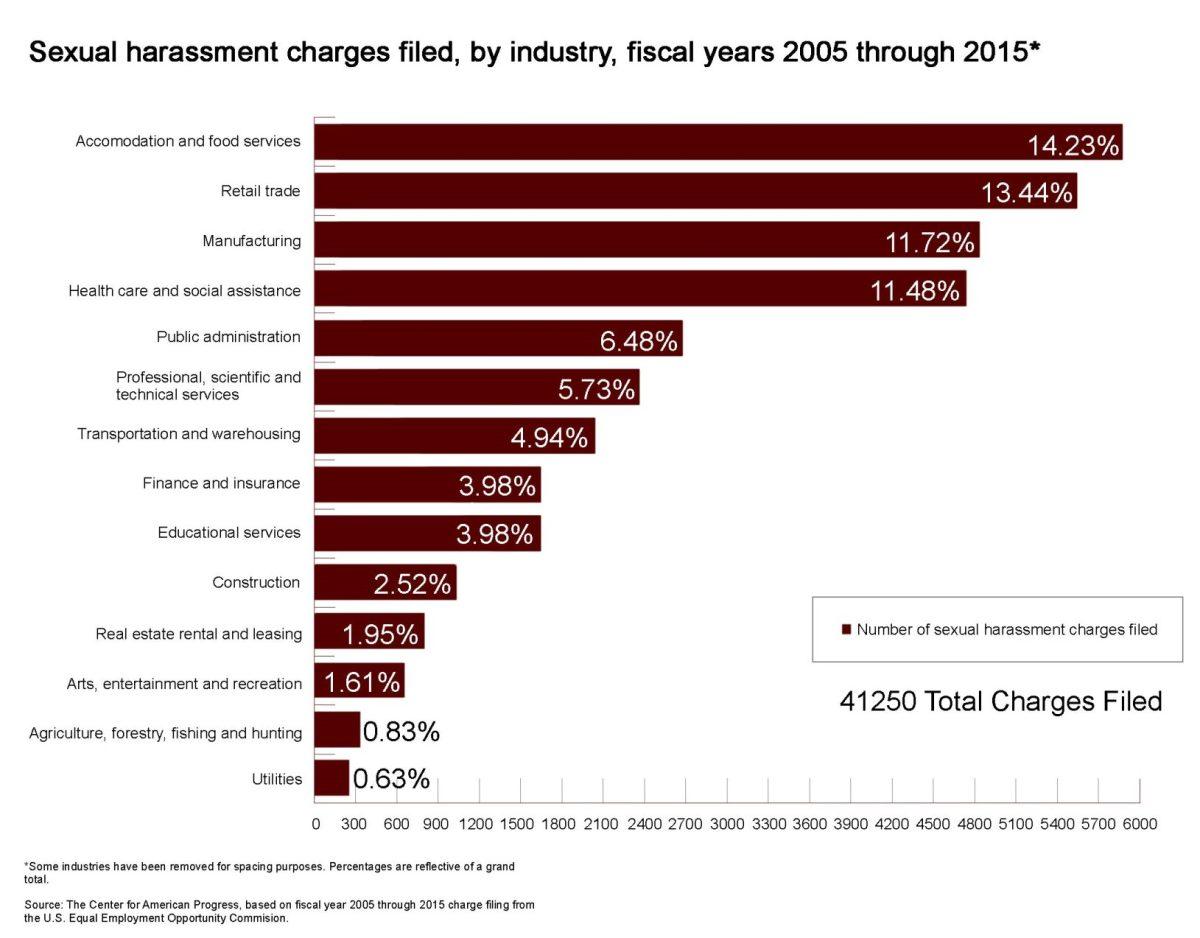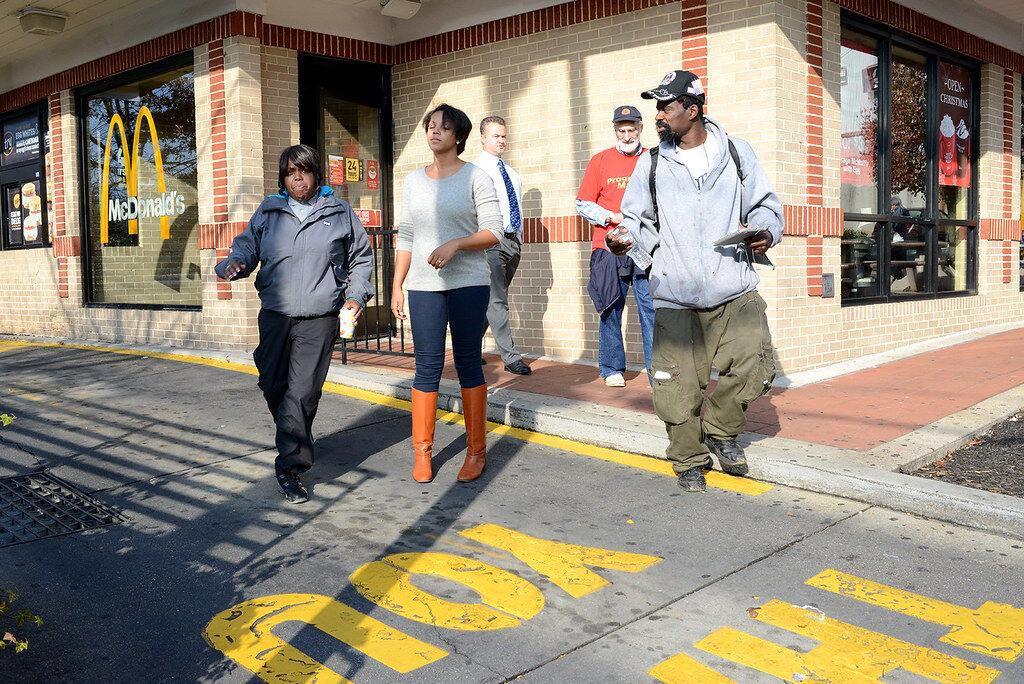I’ve been working in some sort of service or “essential” work industry ever since I turned 16. From restaurants to grocery stores, I spent many of my formative years behind a cash register or kitchen line. During this time I have worked alongside coworkers and acquaintances — but also friends as well. Many were young like me, but a surprising number were not.
There’s a wealth of commentary concerning the harsh economic reality which traps many individuals in low-paying jobs like these. Rent, food and transportation typically don’t come cheap and many are left living from paycheck to paycheck — like a swimmer treading water, each stroke just narrowly keeping their head above the waves.
While it is difficult to understate the enormity of the crushing economic waters, for a moment, I hope to invite the possibility that the degrading and dehumanizing nature of these occupations plays a significant role in decreasing economic mobility as well.
Of course, there will always be rude customers. I’ve been yelled at, cursed out and called slurs. Informing a customer their coupon isn’t valid could just as easily result in confrontation as a cordial understanding.
Being subjected to the verbal whims from the most entitled is harmful enough, but what makes it worse is that by nature of walking through the door, they are given power over you.
I remember the first time my employer received a complaint about my service. I had been working the drive thru at my local Whataburger. We had two lanes, one which was served by the window and another which required an employee to walk out to the vehicle.
As I strode up to this particular car, I was met by a middle-aged woman. While greeting her I was instantly interrupted and remember being startled by just how aggressive and combative she was. With the Texas heat and customer both beating down on me, I quickly, but politely, resumed and placed her order — then returned inside.
Not 15 minutes after her leaving the premises, my manager sat me down in their office to impart a stern warning about a complaint that had been called in. Apparently I had been incredibly rude (I wasn’t) and had brought out chicken in a small to-go container after the kitchen had forgotten to place it on her salad. According to the customer, I should have taken back the salad, opened it and manually placed the chicken inside.
It was transparently petty.
That being said, the complaint did serve as an important lesson. In a restaurant — or any service establishment for that matter — every customer in the room wields a disturbing degree of power over you. With a perceived slight and phone in hand, just about anyone can threaten your job or prompt reprimand in a humiliating manner. The experience is as absurd as it is deeply dehumanizing.
A second, but integral, lesson is that a service worker is expendable and not deserving of fair treatment — not even those afforded by law.
At the time, I was 16, balancing high school and anywhere between 20 and 30 hours on the clock at Whataburger. Lacking a car of my own, I applied there so that I could walk directly from school to work. While the arrival was convenient, the problem was getting off work.
The corporation had a strict policy for those that handled cash: if you left without the manager verifying your drawer contained the correct amount of money — it would result in an automatic termination. When coworkers would call out, or the restaurant was understaffed, many managers simply wouldn’t verify my drawer when it was time for me to leave.
There were many school nights in which I was pressured to remain at work anywhere from midnight until two in the morning. The threat was implicit, if the managers weren’t checking out my drawer I could either stay indefinitely without break, or leave and lose my job. Unfortunately, this happened with increasing regularity until I had to quit.
I’m not entirely sure if these practices were illegal or just highly unethical. Regardless, labor violations are shockingly common in the industry.
Employers understand that “entry-level” workers are replaceable, and most aren’t aware of the laws governing their workplace. Of course, there’s also the added benefit that the chances of receiving consequences are slim to none. Finding yourself in a work environment that requires minors to work later than the law allows, obsessively prohibits discussing your pay with coworkers or forces you to work illegally long hours without break are regular occurrences for service workers.
I would know, as I witnessed or experienced each of these directly.
It would be irresponsible to disregard the fact that the degrading nature of service work can also manifest in more acute and traumatizing ways. I am of course, talking about sexual assault and harassment.
Undeniably present in every trade, the power dynamics present between managers, coworkers and customers contribute to the pervasiveness of harassment in the food and retail industry.
As in many other occupations, direct supervisors exercise power over their employees that have the potential to create a culture of abuse. These same managers often ignore complaints and evidence of assault and harassment. While these factors are seemingly indistinct from most industries, the gender makeup, socioeconomic status and youth of these workers make them particularly susceptible to these behaviors.
More unique to the field is the suffocating, insufferable mantra of “the customer is always right,” resulting in an environment where patrons’ verbal and physical abuse is treated as a given and as something simply part of the job. In my own time working, I have witnessed managers — and even the employees — meet guests’ harassment and stalking with indifference, inaction and resignation. The behavior is not confronted, rather normalized — a consequence of giving power over vulnerable individuals out like candy.
While I personally never experienced or witnessed sexual assualt in the workplace firsthand, I have worked alongside a distressing amount of coworkers that have. Often, these incidents were treated by managers with callousness. At best, the perpetrator, typically a coworker, was usually transferred to another location, making meaningful consequences rare.
The message to these, overwhelmingly women, victims is clear: you are not deserving of protection, you are not worth fighting for, you are not entitled to justice.
While an indictment in and of itself, the prevalence of sexual harassment in these industries is also indicative of a commonplace, underlying culture which harbors no respect for its workers and has grown economically and socially dependent on degrading them.
I think at some level, most of us are cognizant of this culture. We understand that service workers tend to be looked down upon. Yet, we are desensitized to the degree to which working in these industries can erode one’s self-image. For many, working entails being taught they are undeserving of decency, empathy, respect, autonomy and safety with the recurrence of a beating drum.
It’s difficult to envision achieving your aspirations with the entitled swearing of a disgruntled customer in the background. It’s hard to believe in yourself whilst being treated as a replaceable part. It’s near impossible to build a happy life when you succumb to the incessant lie that you aren’t merited even the most basic treatment and security.
I am privileged enough to come from a well-off family. My years in food service and retail will, in all likelihood, eventually be a brief blip in my professional career. However, this will not be the case for many others.
Rethinking industries from the ground-up can be a daunting, difficult task to visualize. However, the process is not just possible — it’s a necessity, so that the demeaning lies of worthlessness cease to dominate the lives of the most vulnerable.
Caleb Elizondo is a computer science sophomore and opinion editor for The Battalion.
Opinion: An ode to service workers
July 24, 2022
Photo by Graph by Cameron Johnson | Data from The Center for American Progress
Data from The Center for American Progress
0
Donate to The Battalion
$1865
$5000
Contributed
Our Goal
Your donation will support the student journalists of Texas A&M University - College Station. Your contribution will allow us to purchase equipment and cover our annual website hosting costs, in addition to paying freelance staffers for their work, travel costs for coverage and more!
More to Discover

















